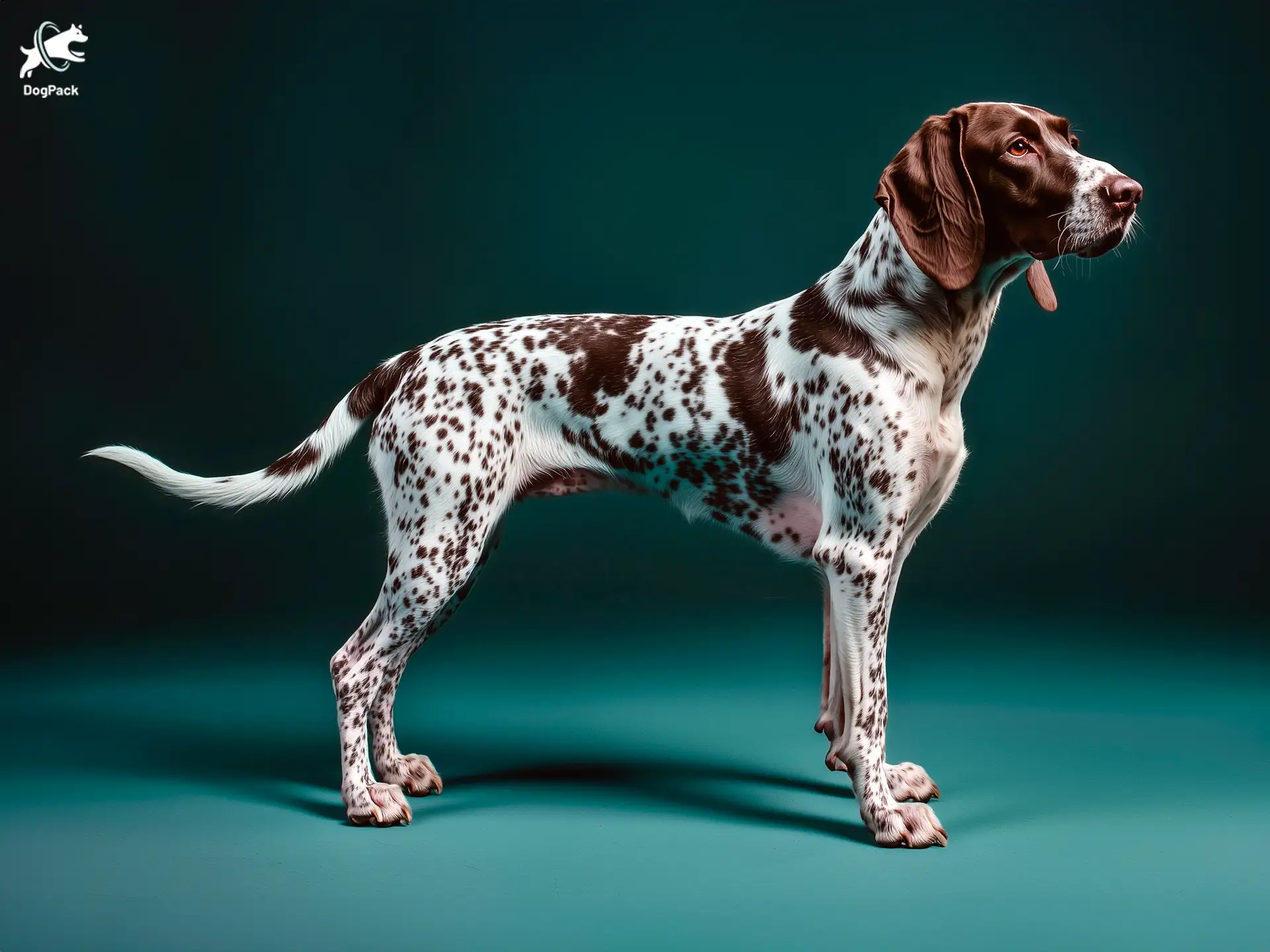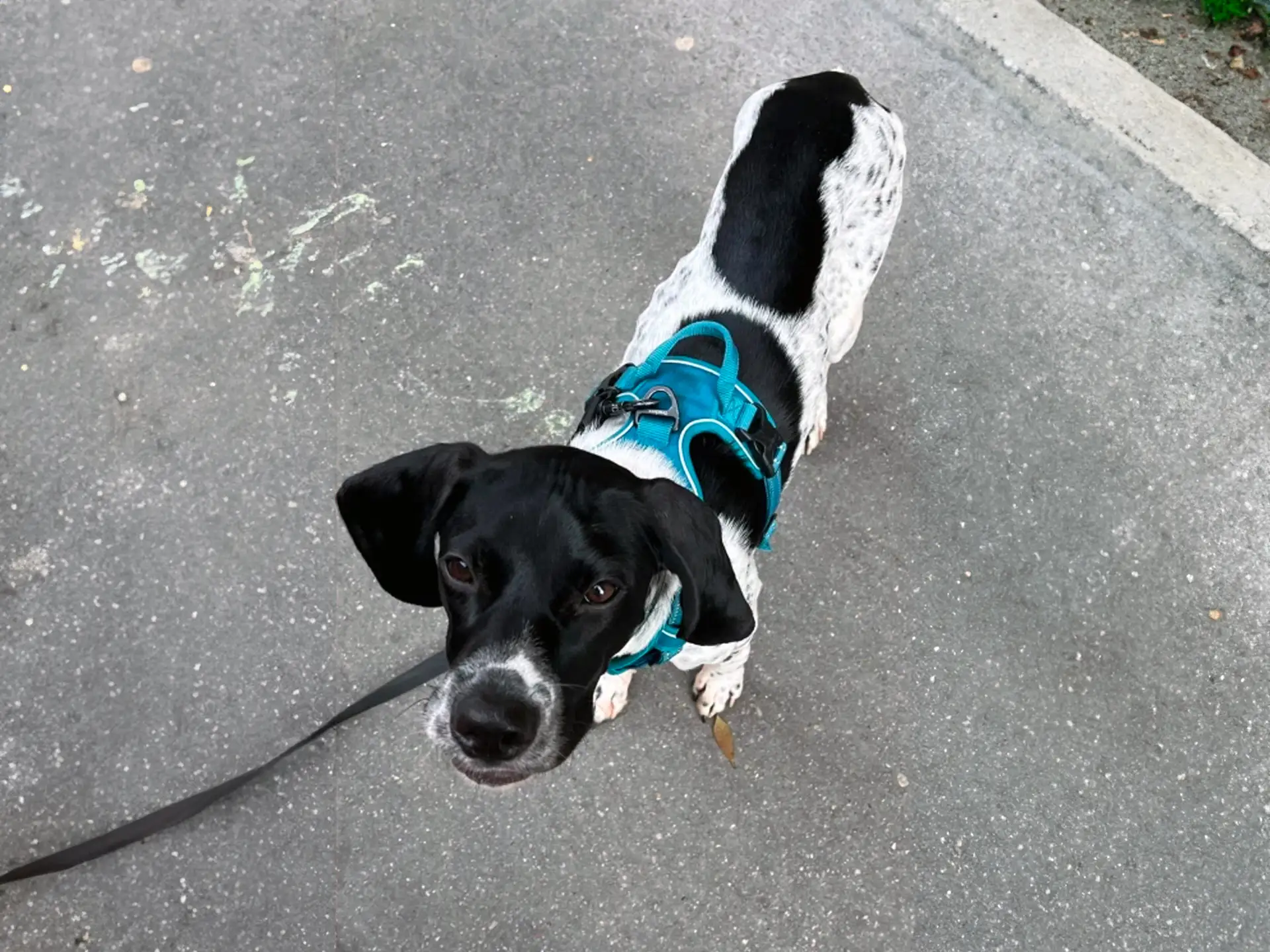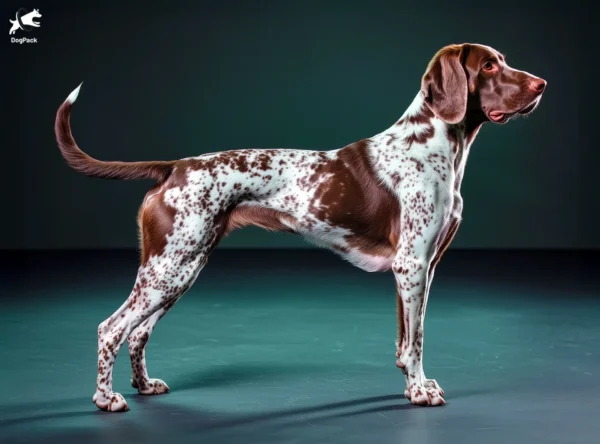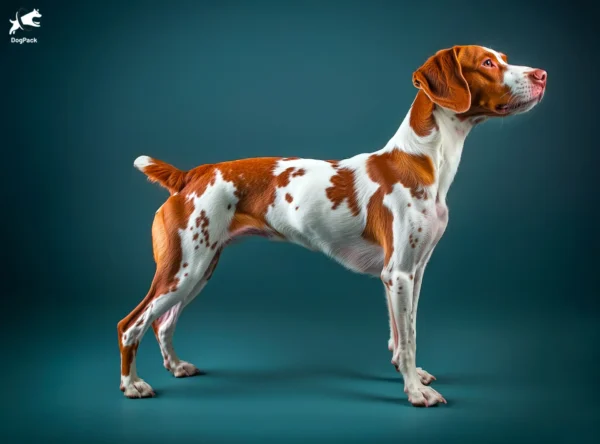Auvergne Pointer Dog Breed Info & Overview
The Auvergne Pointer, also known as the Braque d’Auvergne, is a hidden gem among hunting dogs. Hailing from France, this breed stands out with its elegant black-and-white coat and kind, soulful eyes. While it excels in the field as a skilled hunter, the Auvergne Pointer also makes a devoted, affectionate family companion. If you’re looking for a loyal and versatile dog, this breed offers the best of both worlds.
Characteristics
Pictures
Breed History
Originating from the scenic Auvergne region of France, the Auvergne Pointer has a rich history dating back to the 18th century. Developed by French nobility, this breed was cherished for its exceptional hunting skills, especially in pointing and retrieving game birds.
The breed is believed to have descended from ancient pointing dogs brought to France by the Knights of Malta. Over generations, the Auvergne Pointer became a favorite among local hunters for its endurance and keen sense of smell.
Despite its longstanding presence in France, the breed remained relatively unknown outside its homeland until recent years. The Auvergne Pointer faced near extinction during the World Wars but was revived by dedicated breeders who valued its unique qualities.
Temperament, Personality
The Auvergne Pointer is renowned for its gentle and affectionate nature. Forming strong bonds with family members, this breed thrives on companionship and is known to be excellent with children.
Intelligent and eager to please, these dogs are highly trainable. They respond well to positive reinforcement and enjoy mental challenges, making them great candidates for obedience training and dog sports.
While generally friendly with other pets, early socialization is essential. Their hunting instincts may lead them to chase smaller animals, so supervision is recommended when introducing them to new furry friends.
Physical Characteristics
Sporting a sleek, muscular build, the Auvergne Pointer is both elegant and robust. Its short coat is predominantly white with distinctive black spots and patches, giving it a striking appearance.
One of the breed’s most notable features is its expressive eyes, which often exude a gentle and soulful expression. The ears are long and drooping, adding to its classic pointer look.
Their athletic physique is built for endurance, allowing them to cover rough terrain with ease. This physical prowess is a testament to their history as hardworking hunting companions.
Health Issues
Generally a healthy breed, the Auvergne Pointer has a lifespan of 12 to 15 years. However, like all breeds, they are prone to certain health conditions such as hip dysplasia and ear infections.
Regular veterinary check-ups are crucial for early detection of potential issues. Keeping their ears clean can help prevent infections, especially given their droopy ear structure.
It’s also important to monitor their weight, as obesity can exacerbate joint problems. A balanced diet and regular exercise will go a long way in maintaining their overall health.
Grooming Needs
The Auvergne Pointer’s short coat makes grooming relatively straightforward. A weekly brushing is usually sufficient to keep their coat healthy and shiny, removing loose hair and distributing natural oils.
Shedding is moderate, so occasional extra brushing during shedding seasons can help manage loose fur. Bathing should be done as needed, typically every few months or when they get particularly dirty.
Don’t forget about dental care—regular teeth brushing will help prevent dental diseases. Nail trimming and ear cleaning should also be part of their grooming routine to keep them in tip-top shape.
Exercise Requirements
With high energy levels, the Auvergne Pointer requires at least 1–2 hours of exercise daily. This can include long walks, runs, or vigorous play sessions to keep them physically satisfied.
These dogs excel in activities like agility training, fetch, and of course, hunting-related tasks. Mental stimulation is equally important, so consider puzzle toys or training exercises to keep their minds sharp.
Lack of sufficient exercise can lead to boredom and destructive behavior. Providing ample opportunities for activity will ensure a happy and well-adjusted companion.
Training Tips
Training an Auvergne Pointer can be a rewarding experience due to their intelligence and willingness to please. Consistent, positive reinforcement methods work best with this sensitive breed.
Start socialization and basic obedience training from a young age. Exposing them to various environments, people, and other animals will help them grow into well-rounded adults.
Be patient and keep training sessions fun and engaging. Harsh methods can lead to fear or resistance, so focus on building trust and encouraging good behavior with rewards and praise.
Nutrition, Diet
Feeding the Auvergne Pointer a high-quality diet tailored to medium-sized, active breeds is essential. They require nutrient-dense food to support their energy levels and overall health.
Portion control is important to prevent overeating. Typically, they need about 2.5 to 3 cups of dry food per day, split into two meals. Adjust quantities based on age, activity level, and metabolism.
Consult with your veterinarian to determine the best dietary plan. Some may benefit from diets that support joint health or address specific nutritional needs unique to this breed.
Adoption, Breeders
If you’re interested in adding an Auvergne Pointer to your family, consider reaching out to breed-specific rescue organizations or reputable breeders. The Réunion des Amateurs du Braque d’Auvergne or the Braque d’Auvergne Association can be great resources for information and breeder contacts.
Ensure that any breeder you work with follows ethical practices, including health screenings for genetic conditions. Visiting the breeder and meeting the puppy’s parents can provide insight into the dog’s future temperament and health.
Adoption is also a wonderful option. Organizations like Petfinder occasionally have Auvergne Pointers in need of a loving home.
Family Pet?
The Auvergne Pointer makes an excellent family pet for those who can meet its exercise and companionship needs. Their affectionate nature and gentle disposition make them great with children.
They thrive in active households where they can participate in family activities. Whether it’s a hike in the woods or a game of fetch in the yard, they’ll be happiest when included.
However, due to their energy levels and size, they may not be the best fit for apartment living. Access to a secure yard where they can run and play is ideal.
Right For You?
If you’re an active individual or family looking for a loyal and energetic companion, the Auvergne Pointer could be the perfect match. They excel in environments where they have a job to do and plenty of love to give.
Consider your ability to meet their exercise and social needs. They don’t do well when left alone for long periods and may develop separation anxiety.
Ultimately, this breed thrives with owners who appreciate their hunting heritage and can provide the physical and mental stimulation they require.
Conclusion
The Auvergne Pointer is a rare and remarkable breed that combines the best of both worlds: an excellent hunting partner and a loving family companion. With their friendly demeanor and striking appearance, they have a lot to offer to the right home. If you’re prepared for an active lifestyle and looking for a devoted friend, the Auvergne Pointer might just be your perfect match.
FAQs
-
Is the Auvergne Pointer good with other pets?
Yes, the Auvergne Pointer can get along well with other pets if properly socialized from a young age. Their friendly nature usually extends to other dogs, but their hunting instincts may make them prone to chase smaller animals like cats.
-
How much exercise does an Auvergne Pointer need?
They require at least 1–2 hours of vigorous exercise daily. This can include activities like running, hiking, or participating in dog sports to keep them physically and mentally stimulated.
-
Are Auvergne Pointers easy to train?
Absolutely! Their intelligence and eagerness to please make them highly trainable. Positive reinforcement techniques work best, and they excel in obedience and agility training.
-
What kind of home is best for an Auvergne Pointer?
An active home with access to a large, secure yard is ideal. They thrive in environments where they have plenty of space to run and opportunities for mental stimulation.
-
Do Auvergne Pointers have any special dietary needs?
While they don’t have specific dietary restrictions, they do benefit from high-quality food formulated for active, medium-sized breeds. Consult your veterinarian for personalized dietary advice.
Breed Ratings
Highly intelligent and quick to learn, the Auvergne Pointer excels in training and problem-solving tasks.
They are playful and enjoy interactive games, making them fun companions for active families.
With high energy levels, they require regular exercise to stay happy and healthy.
Moderate shedding; regular brushing helps manage loose hair.
Strong hunting instincts mean a high prey drive; caution around small animals is advised.
Low-maintenance grooming thanks to their short coat.
Eager to please and intelligent, they are highly trainable with positive methods.
They prefer company and may experience separation anxiety if left alone too long.
Moderate; they may bark to alert but are not overly vocal.
Minimal drooling compared to other breeds.
Generally gets along well with other dogs, especially when socialized early.
Generally healthy but watch for breed-specific conditions like hip dysplasia.














